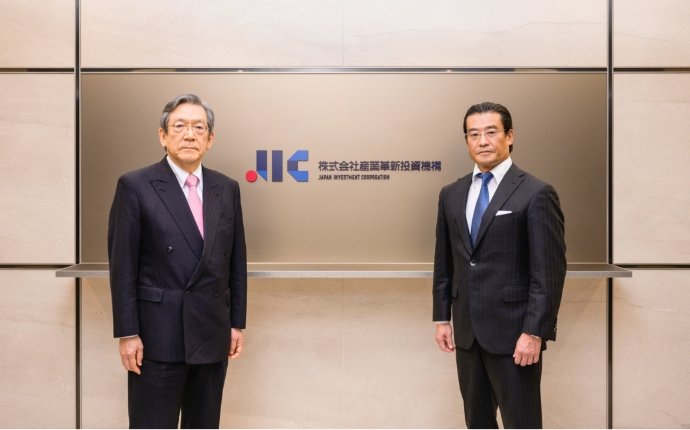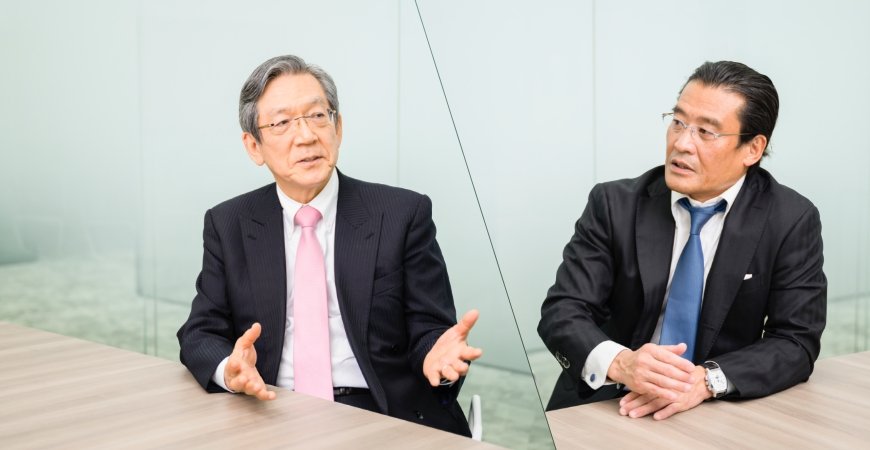TOPICS
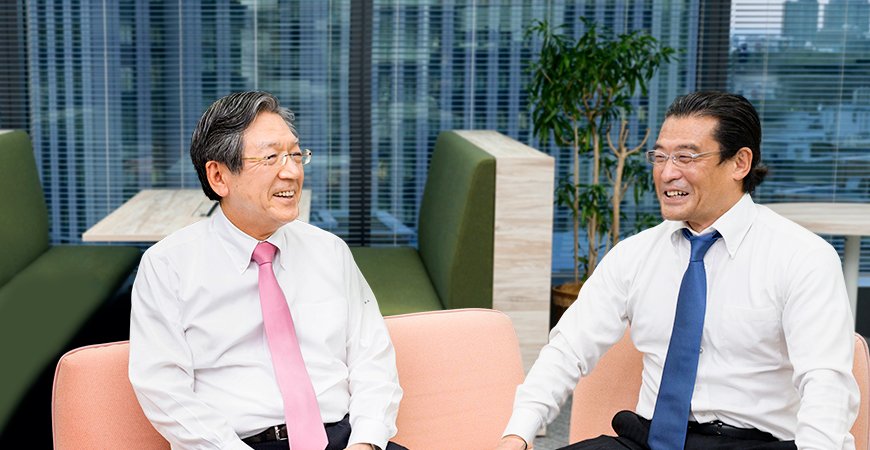
Conversation
Startup
Two Leaders Discuss
JIC Group Investment Activities
Part1
In December 2019, under the leadership of new CEO Keisuke Yokoo, Japan Investment Corporation ("JIC") introduced a new structure.
In July 2020, JIC VGI was established under the JIC umbrella; JIC VGI mainly invests in the venture and growth areas,
and investment activities are being conducted under the leadership of CEO Hideki Yarimizu.
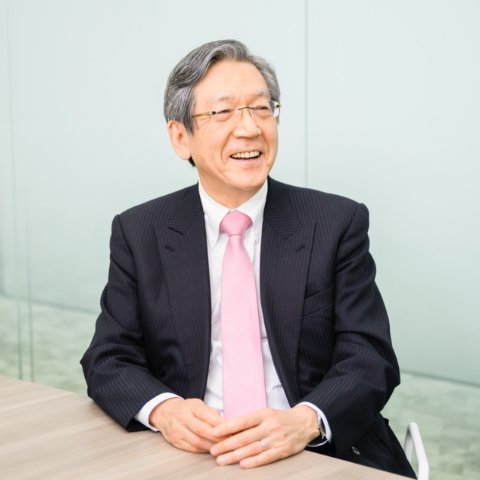
Keisuke Yokoo
President, Member of the Board Chief Executive Officer Japan Investment Corporation
In 1974, Yokoo joined the Industrial Bank of Japan (now Mizuho Bank). Following his posting to the U.S., he worked in capital markets and systems, and was instrumental in the establishment of Shinko Securities.In 2007, he became President and Director of the former Mizuho Securities Co. Following its merger with Shinko Securities, he became President and Director of the current Mizuho Securities in 2009 and Chairman of the Board in 2011.
Vice President and Executive Director, Keizai Doyukai (Japan Association of Corporate Executives), 2015; current position from 2019.
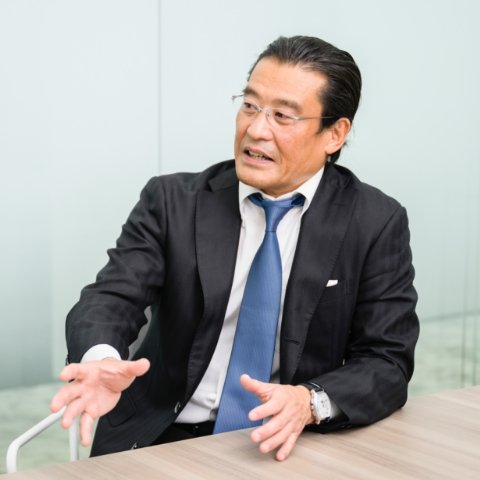
Hideki Yarimizu
Chief Executive Officer, JIC Venture Growth Investments Co., Ltd.
Yarimizu joined Mitsui Life Insurance Company (now Taiju Life Insurance Company) in 1991. After working for PricewaterhouseCoopers and Aozora Bank, he joined the Innovation Network Corporation of Japan (now JIC) in 2009, where he was involved in investment and development of startups in a wide range of stages and industries; current position from 2020.Leveraging Private Sector Wisdom and Power
-What is the meaning of “public-private fund”?
Yokoo Two years ago, when I took over as JIC CEO, I thought about what the term “public-private fund” meant to me. When we talk about public-private funds, we tend to emphasize the aspect of receiving investment from the government and using public funds, but I believe that the private aspect, such as drawing out and utilizing the wisdom and power of the private sector, is just as important. The private aspect refers to leveraging the knowledge, experience, and expertise of the private-sector to realize policy objectives through investment, and then encouraging the supply of risk capital from the private sector. I believe that our greatest responsibility as a public-private fund is to create such a cycle.
-Some people say that we should just leave this kind of activity to the private sector. How do you respond to them?
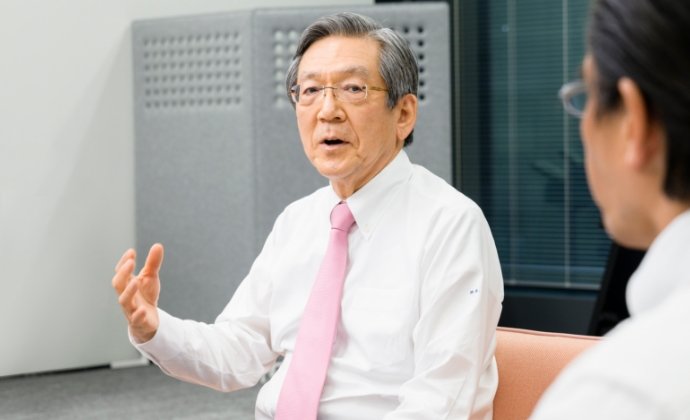
Yokoo I’ve been working in the world of industrial finance and investment in Japan for a long time, and experience has taught me that there are areas where the private sector alone is not able to provide a sufficient supply of risk capital. For example, areas where the depth of private-sector risk capital is insufficient include the drug discovery growth stage and R&D-based startups—where the risks are high and the return on investment is long term—as well as new fields where markets and industries are not yet established and M&A targeting global business restructuring and integration. The idea that public-private funds will provide risk capital to attract private-sector funds to these fields, nurture companies that will lead the next generation of industries, and raise the competitiveness of these industries is completely legitimate when you view it from the perspective of safeguarding Japan’s future.
New Growth Stage for Japan's Startup Ecosystem
-JIC does not invest directly in companies, so JIC VGI was established to handle this type of investment.
Yokoo In principle, JIC seeks to achieve its objective of contributing to the enhancement of Japan's industrial competitiveness through investments by the various funds it has established under its umbrella. In July 2020, JIC Venture Growth Investments Co., Ltd. (JIC VGI) was established as the first such fund, and Mr. Yarimizu was appointed as the president of JIC VGI, which functions as the fund management company.
-What were your thoughts when you became president of JIC VGI?
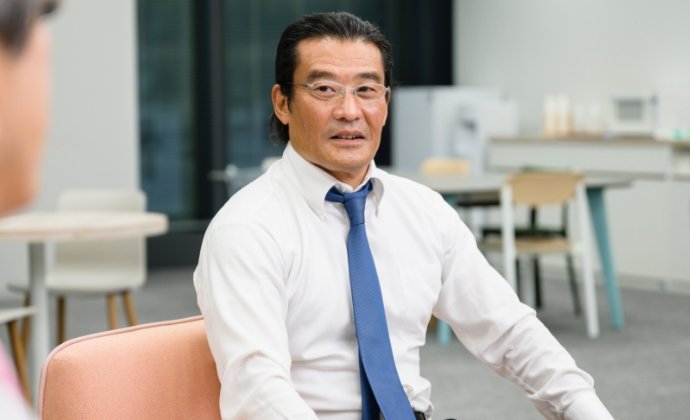
Yarimizu Although I joined in the midst of the COVID-19 pandemic, as Yokoo said, JIC's founding purpose, mission, and vision were clear from the beginning. The success or failure of the fund depends on the growth and ability of capitalists. To this end, I assumed the position while considering from a capitalist's perspective what kind of corporate culture should be fostered, and what the organizational structure and optimal operations should be. There is no “perfect” goal, so together with our members we continue to improve day after day through trial and error.
-How do you view the current state of startup investment in Japan?
Yokoo We established VGI based on the hypothesis that risk capital flows relatively steadily into the seed/early stage, but there is a lack of risk capital in the growth stage, such as before going public, so this is where we need to invest more heavily. Our hypothesis about the lack of risk capital in the growth phase was correct, but upon closer examination, we found, to our surprise, that there was still a lack of risk capital in the seed/early stage as well.
Yarimizu Thanks to the longstanding efforts of industry players, we recognize that Japan's startup ecosystem has entered another growth stage, witnessing increasing startup investment, strong IPOs even during the COVID-19 pandemic, larger funds and the continued entry of foreign funds and institutional investors, and growing human resource liquidity. Given the size of Japan's GDP, it’s an attractive industry with significant room for growth. That said, our experience managing the first fund allowed us to verify not only that there is a high need for growth money, as hypothesized, but that there is also a bias toward risk capital at the seed/early stage and in each industrial area, so we are currently discussing how to address this internally.
